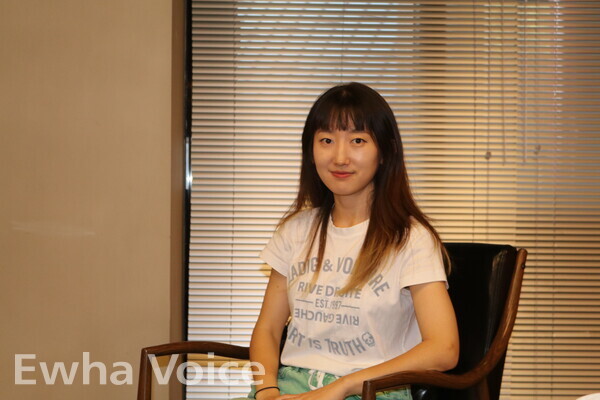
People of most age groups have become somewhat unfamiliar with radio platforms these days, leaving the elderly as the main listeners of radio. This aging of the radio’s main consumer demographic is inevitable and has given rise to a variety of concerns regarding the durability and sustainability of the medium.
While a number of radio producers are troubled by the changes to this legacy media, Soyeon Kang, a radio producer of the Korean Broadcasting System (KBS), has transformed the traditional radio into STATION-Z, a completely new approach appealing to South Korea’s Generation Z.
Kang is an Ewha alumna of Department of Korean Language and Literature with a double major in communication & media. She also minored in the history of art, revealing her passion towards analyzing art and media. Such experiences helped her learn how to view the world differently.
Her interest in wide-ranging subjects inspired her to create STATION-Z, a radio platform featured by KBS Cool FM, where the radio DJ changes every day throughout the week. This means that the theme of the program also changes in accordance with the DJ. Kang wanted to appeal strongly to the younger generations as she found they only prefer listening to the radio when a DJ they are interested in is involved.
“One of the oldest media outlets is the radio, and since it is an audio- based medium, the main listeners are aging,” Kang said. “In order to overcome these limitations of traditional media, I tried to come up with ideas that would connect with the younger generation and help them enjoy listening to the audio- based contents.”
Accordingly, Kang tried to cast radio DJs from a variety of genres including K-POP as well as hip hop and indie music to satisfy a broader population within the younger generation of listeners.
Kang indicated that she feels the most attached to DISCOVER, a corner of STATION-Z where the audience are able to meet newly debuted indie musicians.
“It started with the aim of discovering hidden gems in music,” Kang said. “I realized I am a person who feels proud in the process of creating something new.”
Expressing her concerns about the future of radio platforms, Kang conveyed her hesitance on the possibility of it becoming a mainstream medium again. Compared to the past where there used to be a number of widely listened radio programs, nowadays, there are not much ripple effects. Therefore, she does not feel confident about recommending Ewha students to become radio producers as there are other diverse occupations available to create one’s own content.
However, Kang noted that she is concentrating on revitalizing the radio industry by constantly keeping track of rapidly changing media trends. Furthermore, she puts effort into satisfying the younger generation, who are not used to listening to the radio live, by uploading videos on YouTube to allow people to listen to the radio whenever they want.
“The most important step to becoming a radio producer is being an all-rounder,” Kang said. “It is crucial for us to have sufficient knowledge of current affairs, music, and culture rather than only sticking to our own interests.”
Accordingly, one goal Kang wishes to achieve in KBS is to launch a program that can provide an opportunity for radios to become the mainstream again through the creation of a program that the public might consider strange and new.
Wrapping up the interview, Kang reminisced about herself sitting on a bus one night on her way back home. The bus driver was listening to an evening radio show playing songs that brightened up the end of an exhausting day.
“It made me realize that the radio can act as a background music for the end of the day and reach out to many people,” Kang said. “I found this very romantic.”

